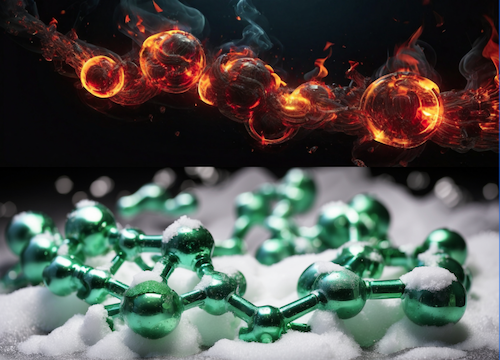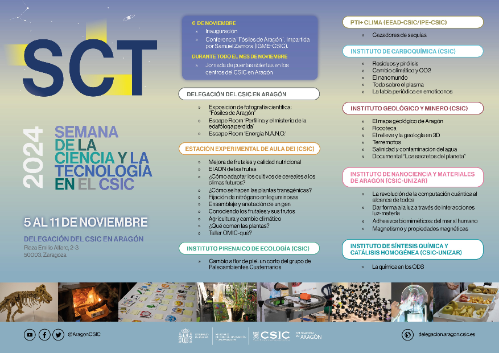10 Doctoral Candidates unite to revolutionize the future of refrigeration
- The research of the project MolCal is particularly relevant in the current context, as temperature control systems represent approximately half of the energy consumption in the European Union
(Zaragoza, 4th of November, 2024). Ten Doctoral Candidates have recently joined the MolCal (Molecule-based magneto/electro/mechano-Calorics) Doctoral Network with the aim of enriching their research training in the field of caloric materials and energy conversion technologies. With a multidisciplinary and collaborative approach, their work could transform the way we cool and heat our homes, buildings and vehicles in the future.
International mobility is a fundamental requirement in this type of project, so each Doctoral Candidate will have the opportunity to live the experience in a country different from the one in which they have resided in recent years. Throughout the project, they will also carry out secondments in different countries to expand their training and knowledge. In addition, at the network level, four in-person events will be held in different countries: Germany, Greece, Scotland and Spain.
MolCal seeks to enhance European innovation capacity by introducing solid-state heat pump technologies that are energy-efficient and environmentally friendly. The project will contribute to reducing energy consumption, supporting climate goals, and driving new markets for green cooling technologies.
Traditional vapor compression systems used in cooling are energy-intensive and environmentally harmful. MolCal aims to address this challenge through an approach never tried before in similar collaborative research training programmes. The project considers caloric materials that fall under the umbrella of molecule-based, that can generate temperature changes using magnetic, electric, or mechanical stimuli.
It is expected the development of cooling systems that require less energy compared to traditional methods, through the development of devices based on low-cost barocaloric materials. As well as the development of alternatives to helium-based systems, especially for applications that require extremely low temperatures, which are essential in the field of scientific research.
MolCal is coordinated by Marco Evangelisti, CSIC researcher at the Aragon Nanoscience and Materials Institute (INMA), a joint institute of the Spanish National Research Council (CSIC) and the University of Zaragoza. In addition to the CSIC, the consortium is made up of: University of Crete, University of Bielefeld, University of Seville, Paris-Saclay University, Consiglio Nazionale delle Ricerche (CNR), University of Edinburgh, University of Zaragoza, Technical University of Eindhoven and the companies Sunamp Limited, Quantum Design, Lake Shore Cryotronics and BSH.
The project, with a duration of 4 years and funded with 2,600,000 euros, receives funds from the European Union through the Marie Skłodowska-Curie Actions (MSCA) within the “Horizon Europe” Programme, which main objective is to support the training and professional development of research staff around the world, and from UK Research and Innovation (UKRI).

More information about the project at molcal.eu.
Audio information about the MolCal project
4th Nov. 2024










